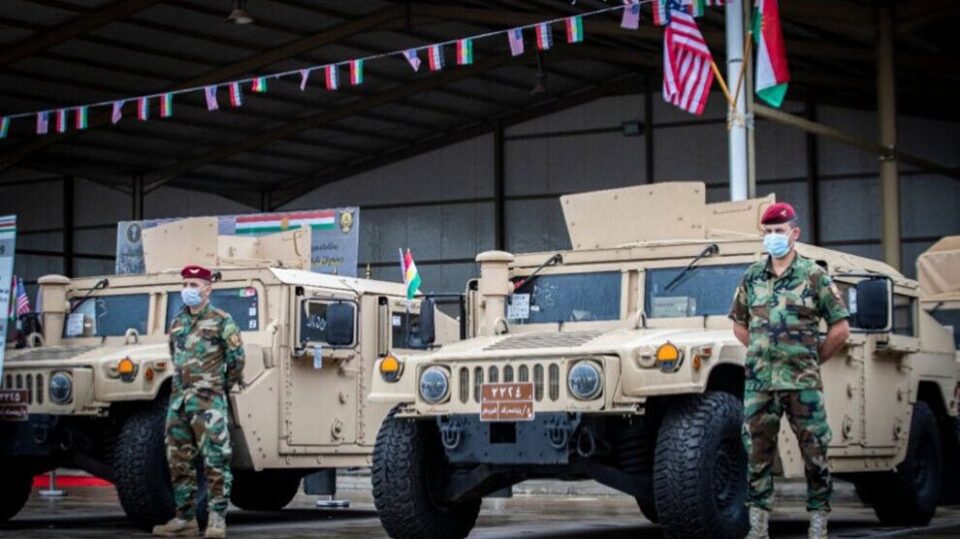Several countries are preparing to send military advisors to Kurdistan, as international allies intensify pressure to unify the Peshmerga into a professional, nonpartisan national force.
Since the emergence of ISIS in 2014, the Kurdistan Region’s Peshmerga forces have played a vital role in defending Kurdish territory. At the cost of thousands of martyrs, they prevented ISIS from advancing and remaining along the borders of Kurdistan for an extended period. Under U.S. leadership, the Coalition forces rapidly established a military command structure that coordinated operations with the Iraqi Army and the Peshmerga to defeat ISIS. Until October 16, 2017, Peshmerga forces had full control over all Kurdish-majority areas outside the formal administration of the Kurdistan Regional Government (KRG), with parts of those territories reclaimed during battles against ISIS. Eventually, ISIS was crushed, and Mosul was liberated.
The Peshmerga’s heroism during the war against ISIS earned global recognition. World leaders and NATO acknowledged their crucial role in defending the region. As a result, the Coalition decided to launch a program aimed at training and equipping the Peshmerga, which continues to this day — particularly in the areas of logistical, military, and operational support. The second phase of the program focuses on Peshmerga reform: merging Units 70 and 80 to create a unified Kurdistan force. Following unification, strategic management of the Peshmerga across the region’s borders will undergo significant change.
Sagvan Sindi, Deputy Head of the Kurdistan Parliament’s Security and Defense Committee, told The Kurdish Globe: “The Coalition is making serious efforts to turn the Peshmerga into a professional and capable force. However, unless the Peshmerga unites and is detached from partisan affiliations, neither the Coalition’s seriousness nor its deep support will materialize.”
He added: “Several countries are preparing to send military teams to Kurdistan, but their mission will focus on unifying the forces. If we can achieve Peshmerga unification, we will be able to request greater and more substantial support from our international allies.”
Babakr Zebari, former Chief of Staff of the Iraqi Army and current military advisor to the Kurdistan Region President, told The Kurdish Globe: “Unifying the Peshmerga is crucial. A unified Peshmerga is the unification of the nation itself. Only through unity can we confront ISIS and other enemies with strength. A united Peshmerga would result in more advanced weaponry and equipment, stronger alliances, and a firmer position internationally. Therefore, we must intensify efforts toward unification.”
He continued: “Nearly 80 countries have expressed goodwill and a strong desire to see the Peshmerga unified. The Peshmerga reform project has entered the implementation phase, and for the first time, there is some trust between the two dominant parties to bring their forces under the KRG Ministry of Peshmerga’s control. Once that happens, the Coalition will no longer have any reason to suspend training programs or express concern. Preparations must also be made at the international level because a more organized and structured Peshmerga may have even greater responsibilities in the future. We hope the U.S. Congress will recognize this and support future regional initiatives in favor of the Peshmerga.”
The Kurdistan political leadership has consistently complained that, unlike the support provided to the Iraqi Army, the Peshmerga have not received their fair share of international assistance. Thus, it is crucial to ensure that future cooperation is properly structured and implemented.
Babakr Zebari elaborated further: “We must separate Kurdish participation from the general aid provided to the Iraqi forces. It should be clear how much Kurdistan needs and what kinds of weapons and assistance are suitable for our forces, distinct from the Iraqi security forces. The Peshmerga cannot continue to be counted among Iraq’s security formations while receiving disproportionately little support. This injustice must end. Efforts should be made to convince the Coalition that aid must be delivered directly to the Peshmerga, not through Baghdad, where it risks being diminished before reaching us.”
The Kurdish Globe

